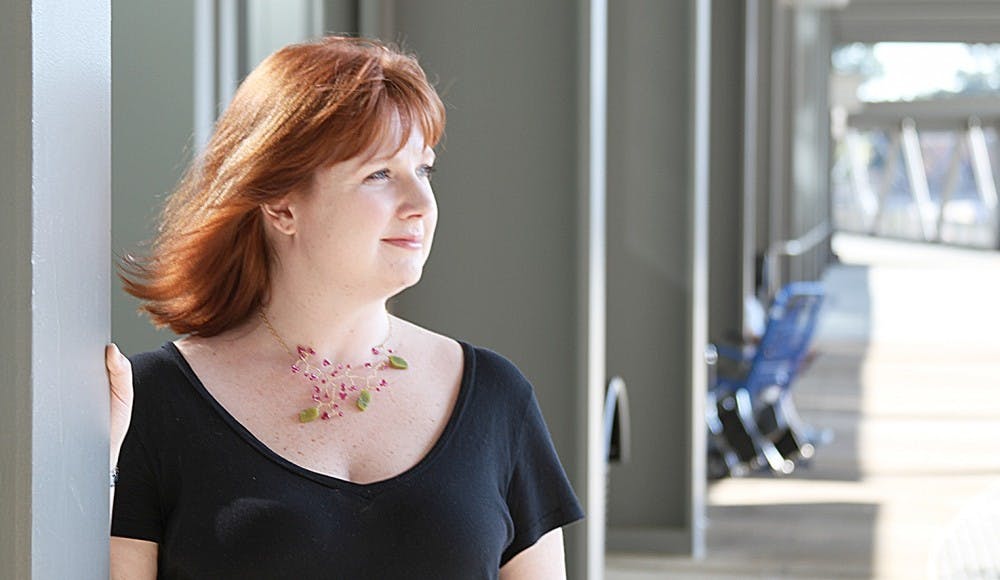That specialized care now comes in the form of five inpatient beds in the clinic, located within UNC’s Neurosciences Hospital. It opened Aug. 15.
Samantha Meltzer-Brody, director of the perinatal psychiatry program at the UNC Center for Women’s Mood Disorders, realized the need for an inpatient component to the existing outpatient program and launched a pilot in 2008.
Meltzer-Brody said the pilot was successful, but without a freestanding space, the team wasn’t able to conduct all of the necessary therapies. They needed to expand.
With the support of hospital administrators, UNC Hospitals funded an $80,000 construction of a separate space for the unit, said Stephanie Crayton, media relations manager for UNC Hospitals.
Five pre-existing beds were designated for the unit, UNC Hospitals spokeswoman Jennifer James said. Overall hospital revenue will not increase with the addition of the unit.
“This is not a change in revenue structure for UNC Hospitals, but a commitment to a particular line of service,” James said.
Raines said the UNC Hospitals team hopes the unit can serve as a model for other states.
Women entering the clinic receive treatments including medication management, support therapy and mother-infant attachment groups.
Raines said the team wants to maintain a family approach. “This truly doesn’t just affect the mom; it affects the entire family,” she said.
The unit’s brochure lists features like protected sleep time, extended visiting hours for mothers and babies, lactation supplies, group therapies, yoga, family- and partner-assisted psychotherapy, nutrition consultation and transition to outpatient treatment.
Raines said having a small clinic means women can feel comfortable bringing their babies into the unit and talking to other patients.
“Part of the support system within our unit is the moms being able to support each other,” Raines said.
To get the day's news and headlines in your inbox each morning, sign up for our email newsletters.
After a few weeks, Martin talked with family and decided she needed help. She heard about a pilot program for women with postpartum depression and, desperate for help, applied.
“I thought, ‘I can’t be a good parent if I’m feeling like this,’” she said.
She left for the hospital — but not without apprehension.
“I was really scared of the stigma of being considered a mental patient with a mental illness, but at the same time I didn’t really care,” Martin said. “I wanted to get help.”
Meltzer-Brody said many women refuse to go to a clinic labeled “psychiatry.”
“Being admitted to a psychiatric hospital is a little bit daunting, and there is a stigma with that,” Raines said.
But attitudes are changing.
“This issue has gotten national attention,” Meltzer-Brody said, listing celebrities like Brooke Shields and Gwyneth Paltrow, both of whom have publicized their struggles with postpartum depression.
“I’m really proud to be at UNC at this point,” Meltzer-Brody said. “It’s just a really great day for women’s health, for motherhood and for UNC.” But the mission to reduce the illness’ stigma is far from finished, Raines said.
“The word of postpartum depression is really getting out there, but it’s not as well known as we would like it to be,” she said.
Martin agreed.
“I don’t want other women to have to go through such a horrible experience, feeling such horrible feelings and feel like they’re alone,” she said. “There is help out there, and you can get better.”
Contact the University Editor at university@dailytarheel.com.



